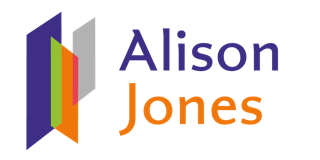Olympia, that gracious old building, bristling with technology and drenched in sunlight, was a fitting metaphor for the industry this year, as well as its showcase.
This year’s London Book Fair – a key public event in the industry year – was also a significant personal milestone for me. The first day of LBF 2014 was the first day of my new life as a small business as coach, consultant and independent publisher, high on enthusiasm and energy. This year the enthusiasm and energy remain undimmed, only now (thank goodness) backed up by evidence rather than force of will. It turned out my gamble was right: there are exciting, creative opportunities for publishers at every turn these days. (My niche, working with businesses and organizations who want to publish as part of their content marketing strategy, just happens to be the most fun. Obviously.)
It’s about size (or rather, what you do with it)
Of course you see what you pay attention to, but I’m not alone in thinking that this year one of the key themes of the Fair was the impact of indie – in contrast to a trend towards consolidation and economies of scale at one end of the industry (Macmillan and Springer, Penguin and Random House, Overdrive and Kobo etc etc) is an explosion of small players riding a new technology and social infrastructure to punch way above their weight at the other.
It’s about the authors…
Indie authors are the obvious example, empowered by the option and opportunity of self-publishing, crowd-funding and platform building: AuthorHQ featured some of the best known, but it was clear from the questions and conversation from the floor that there are many more out there. At some point during one of the many drinks parties I met the hugely successful, charming but alarmingly tall self-published author of cyber thrillers Ian Sutherland, whose latest work is non-fiction, a distillation of what he’s learned about harnessing the power of social media: Advanced Twitter Strategies for Authors.
I was also privileged to be part of The Write Stuff judging panel yesterday where the quality and range of the writing hugely impressed me and my fellow judges – three top agents. (The winner was Sanjiv Rana – remember his name.) All the shortlisted writers face choices that wouldn’t have been available just a few years ago: yes, they had chosen to pitch for the support and expertise of professional agents and publishers, but there was no question that their book wouldn’t be published, and couldn’t be successful, if they didn’t get it.
Indie authors no longer have to assert their right to recognition as a key part of the publishing landscape (you might say they never did) – this LBF they were very clearly an established and accepted part of it.
It’s about the publishers….
Indie publishers are equally exciting – the IPG stand, or rather constellation of stands, was one of the busiest and buzziest of the Fair. Small presses tend to focus in specific niches, where they are close to readers and writers, where their passion and expertise lends itself brilliantly to the kind of loyalty, engagement and consumer brand recognition that the more diverse big publishers can only dream of. It’s great to see indies beginning to leverage social capital, direct selling and online/offline communities, although most presses, large and small, are still missing opportunities here. IPG member Cicerone Press is a great example: alongside its guidebooks, all of which are available in print and digital formats from its own website, it offers articles on destinations and outdoor pursuits, and Cicerone Extra, a digital magazine which not only captures web traffic and promotes the publisher’s titles but engages and involves its community. As I’ve said before, trust is the most precious asset for any business.
It’s about the infrastructure…
And finally there’s a thriving ecosystem of small and/or start-up technology providers, for example Bibliocloud: CEO Emma Barnes, who featured on my Publishing for Digital Minds panel earlier this week, has written eloquently on the theme of ‘small is beautiful’ in this context, challenging the unwritten assumption that small companies should get big or get bought.
It’s about the mix…
I’m more excited than ever about the future of publishing, across all its multifarious frontiers: the gap between the digital enthusiasts and the rest of the industry has closed to the point of near-invisibility, and the fear of disintermediation has given way to a new sense of optimism and opportunity. Content is everywhere, and content is what we do best. Big or small, the players are increasingly doing interesting stuff with interesting people. Olympia, that gracious old building, bristling with technology and drenched in sunlight, was a fitting metaphor for the industry this year, as well as its showcase.
